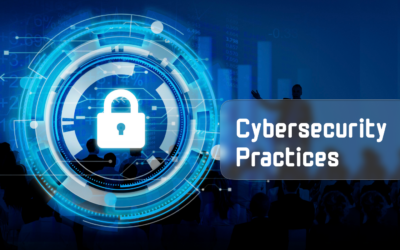Why is Cybersecurity Important in Fintech?

Financial Technology companies, or FinTech’s, have revolutionized the global economy by making financial services more accessible, efficient, and convenient. With the growth of fintech comes an increasing demand for robust cybersecurity measures to protect sensitive financial data and maintain customer trust. In this blog, we explore the critical role of cybersecurity in fintech, common threats, and how fintech firms like Stridefuture can fortify their digital ecosystems.
What is Fintech Cybersecurity?
Fintech cybersecurity focuses on protecting financial technology platforms from digital threats, ensuring the safety of transactions, user data, and the overall integrity of financial systems. As fintech companies handle sensitive financial information, their security protocols must include encryption, secure transactions, fraud detection, and stringent authentication measures.
By prioritizing cybersecurity, fintechs help reduce the risk of cyberattacks, ensuring trust and compliance with industry regulations.
Common Cybersecurity Threats in Fintech
Data Breaches: Data breaches occur when unauthorized individuals access sensitive financial information, such as customer data, transaction details, or corporate financial records. In the fintech sector, these breaches can lead to severe financial losses, reputational damage, and legal repercussions. Hackers often exploit weak security protocols, unpatched software, or phishing techniques to infiltrate systems. The 2022 Revolut breach is a prime example, where social engineering tactics were used to access over 50,000 users’ personal and financial data. Such incidents highlight the need for constant vigilance and updated security measures to protect against emerging threats.
Phishing Attacks: Phishing is one of the most common cyberattack methods in which attackers deceive individuals into providing sensitive information, such as usernames, passwords, or credit card details. Fintech companies are prime targets due to the wealth of valuable data they handle. Phishing attacks can take various forms, including fake emails, malicious websites, or even phone calls impersonating legitimate organizations. If employees or customers fall victim, attackers can gain unauthorized access to accounts or systems, leading to substantial financial and reputational damage.
Ransomware: Ransomware attacks involve encrypting a company’s data and demanding a ransom for its release. In fintech, where uninterrupted access to customer data and transaction processing is critical, such attacks can cripple operations and result in significant financial losses. The sensitive nature of financial data also makes fintech companies more likely to pay the ransom to restore operations. However, paying the ransom does not guarantee data recovery, and in some cases, attackers may demand additional payments, compounding the financial losses.
Importance of Data Security in Fintech
Encryption: Encryption is a vital aspect of data security in fintech, involving the encoding of sensitive information so that it can only be accessed by authorized users with the decryption key. In fintech, encryption ensures that customer data and financial transactions are protected while in transit over networks or when stored. Strong encryption methods, such as AES-256, safeguard information from unauthorized access, even if data is intercepted.
Access Controls: Access control mechanisms limit who can view, modify, or interact with critical data and systems based on their role within the organization. This ensures that only authorized personnel can access sensitive financial data, minimizing the risk of insider threats and unauthorized access. Fintech companies implement role-based access control (RBAC) to manage permissions effectively, restricting access to sensitive areas of their systems.
Authentication Mechanisms: Strong authentication mechanisms, such as two-factor authentication (2FA) and biometric verification, add additional layers of security to fintech platforms. These measures require users to provide not only their password but also a second form of verification, such as a fingerprint or a code sent to their mobile device, making it harder for attackers to gain unauthorized access.
Compliance with Regulations: Fintech companies must adhere to various regulatory standards such as GDPR (General Data Protection Regulation), PCI DSS (Payment Card Industry Data Security Standard), and FISMA (Federal Information Security Management Act) to protect customer data and avoid penalties. Compliance involves regularly auditing security measures, ensuring data protection policies are up to date, and maintaining transparency with users about data handling practices.
How Fintech Companies Can Improve Cybersecurity
Regular Security Audits: Regular security audits involve evaluating a fintech company’s systems to identify vulnerabilities that could be exploited by attackers. These audits help firms stay ahead of potential security threats by identifying gaps in the system, outdated software, and misconfigurations that could compromise the security of sensitive data.
Encryption: Fintech companies must encrypt data both at rest (stored data) and in transit (data being transmitted across networks). Encryption ensures that even if data is intercepted or accessed by unauthorized parties, it remains unreadable without the decryption key. Implementing robust encryption protocols like SSL/TLS for secure communications and AES for data storage is crucial for safeguarding financial information.
Layered Security: A layered security approach involves using multiple security controls to protect against cyber threats. This might include firewalls, intrusion detection systems (IDS), anti-virus software, and endpoint protection. By combining various defenses, fintech companies create a more robust security framework that makes it harder for attackers to exploit a single vulnerability.
Access Management: Managing access to sensitive data is critical in preventing unauthorized access. Fintech companies should implement role-based access control (RBAC), ensuring that employees only have access to the data and systems necessary for their role. Regularly reviewing and adjusting these access privileges ensures that employees don’t retain unnecessary access to sensitive information, reducing the risk of insider threats.
Employee Training: Employees are often the first line of defense in cybersecurity. Regular cybersecurity training helps employees recognize phishing attempts, use secure passwords, and follow best practices for handling sensitive data. Educating employees about the latest cybersecurity threats and how to prevent them is essential in maintaining a strong security posture.
Real-Time Monitoring: Implementing systems that provide real-time monitoring of cyber threats allows fintech companies to detect and respond to potential security incidents as they happen. This proactive approach helps to mitigate the damage from attacks by enabling swift countermeasures, minimizing the impact on operations and customers.
The Role of Kubernetes in Fintech Cybersecurity
In fintech, projects like Kubernetes—a platform for managing containerized applications—are integral to handling financial data. However, they come with their own set of security risks. By keeping Kubernetes deployments up to date with security patches and configurations, fintech firms can protect sensitive data and mitigate potential risks.
Key Benefits of Cybersecurity in Fintech
Protection of Sensitive Data: Robust cybersecurity measures, such as encryption and access controls, ensure that sensitive financial data, including customer information and transaction details, are safeguarded from unauthorized access. This is essential for preventing data breaches, protecting company assets, and maintaining customer confidence.
Prevention of Financial Loss: Effective cybersecurity strategies, such as intrusion detection systems and network security, help detect and prevent cyberattacks before they cause significant harm. By stopping attacks early, fintech companies can avoid costly financial losses, operational disruptions, and damage to their reputation.
Maintaining Consumer Trust: In the fintech industry, customer trust is crucial. By demonstrating a commitment to cybersecurity, fintech companies reassure their customers that their financial information is safe. This builds customer loyalty, helps retain clients, and attracts new users who prioritize security.
Regulatory Compliance: Compliance with data protection regulations such as GDPR, PCI DSS, and FISMA is not just a legal requirement but also an essential part of maintaining a strong cybersecurity posture. Fulfilling these obligations helps fintech companies avoid legal actions and hefty fines, while also demonstrating their commitment to protecting customer data.
Future Trends in Fintech Cybersecurity
The future of cybersecurity in fintech will see even more advanced and comprehensive frameworks to address emerging threats. Fintech firms must continuously innovate their security protocols to protect against increasingly sophisticated cyberattacks. As fintech continues to reshape the financial landscape, the importance of cybersecurity will only grow.
Choose Stridefuture for Advanced Fintech Cybersecurity
As a leading IT service provider, Stridefuture is committed to helping fintech companies secure their digital ecosystems. Our expertise in developing and maintaining secure software solutions enables fintech firms to protect sensitive financial data, maintain regulatory compliance, and stay ahead of evolving cyber threats.
With Stridefuture, you can foster a culture of security that safeguards your operations, builds customer trust, and ensures the longevity of your fintech business in an ever-changing digital landscape.
Conclusion
In an increasingly digital financial landscape, cybersecurity in fintech is of paramount importance. As fintech companies like Stridefuture continue to innovate and expand their offerings, ensuring the security of their platforms is essential for protecting customer data, maintaining regulatory compliance, and building trust.
By implementing robust security protocols such as encryption, access controls, and layered defenses, fintech companies can mitigate the risks posed by cyber threats and ensure operational continuity. Furthermore, regular security audits, employee training, and real-time monitoring are vital in maintaining a strong cybersecurity posture.
The future of fintech will continue to be shaped by advancements in digital technology, but without a strong focus on cybersecurity, these innovations could be undermined by cyberattacks. Companies like Stridefuture must remain vigilant, continuously updating their security measures to address emerging threats and secure the future of financial technology services.
Are you looking for any IT Services such as Web design and Development, Professional/Staff Augmentation Services, Cloud Computing, Mobile App Development, Digital Marketing Services and more? Connect Stridefuture Technology, which helps to meet your requirements.
{StrideFuture Technology, a full-service company specializing in Software Solutions and Consultancy services. We specialize in Personal, Business, IT Services, Web design and Development, Mobile App Development, Digital Marketing Services, and much more you can dream Virtually with us! Reach out for more service at StrideFuture Technology.}









